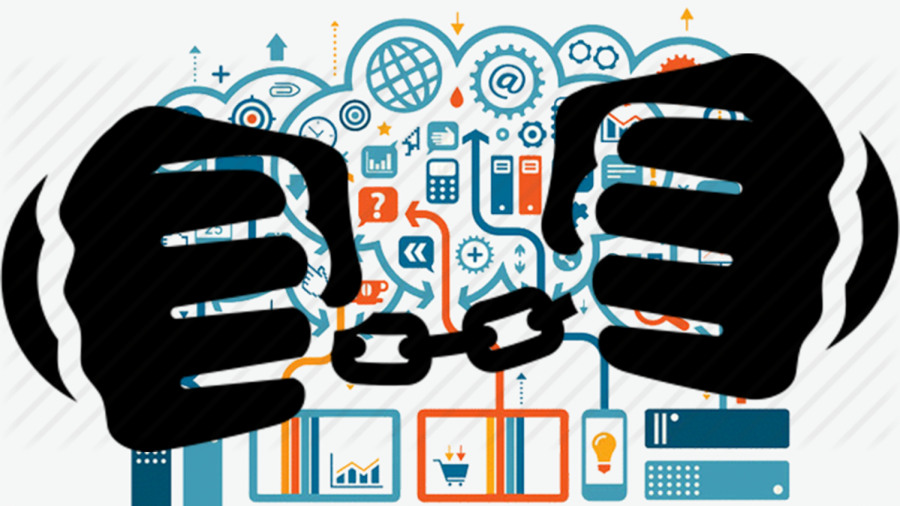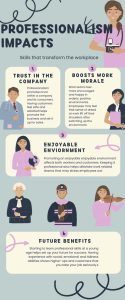Ethical responsibility on the internet
Ethnic responsibility on the Internet is a complex concept but is often an overlooked issue
photo courtesy of Jordan Bakar
On the Internet, citizens are free to express their opinions, but there are numerous, implemented ways of regulating its usage and corresponding ethical responsibility.
October 14, 2019
With the release of the Internet to the public back in the early 1990s, humans have completely changed and reimagined the way they see or react to the world around them. Frequent advancements in technology practically every day allows the use and accessibility of the internet to become more widespread than ever, reaching new areas that didn’t have access to it before. To emphasize, having responsibility means to take control, being accountable for your actions, and facing the possible consequences that may occur. Equally important, regulating the Internet means to set standards, rules and controlling what citizens have access to on the world wide web. The internet should have the responsibility to be ethically regulated because copyright infringement occurs at an alarming rate, numerous governments have access to their citizen’s information or control the Internet in its entirety by censoring what citizens shouldn’t see, huge corporations are taking advantage of consumers with e-commerce and tracking user’s preferences and social media can change the views on people’s opinions and cause disruptions in the spread of new information.
To commence with, the Internet should have the responsibility to be ethically regulated as copyright infringement takes place at a disturbing level. The definition of copyright infringement according to the website Copyrighted is stated as, “Copyright infringement pertains to the violation of someone’s intellectual property (IP).” Intellectual properties are just any creations of the human mind that are protected from unauthorized use. The most common types of laws that protect intellectual properties are copyright, trademark and patents. Present-day, people participate in copyright infringement by watching pirated or downloading movies on illegal sites or just using copyrighted media such as music and images without getting proper permission from the owners. This action is completely unethical and unfair to the creators who spent the time creating the intellectual property in the first place. People continue to engage in this illegal activity, even though they know it’s unethical to do so, but some people just need to be better educated on the copyright infringement concept and its rules. There have been laws and fines put in place to combat copyright infringement. For instance, the United States initiated a federal statute that went into effect in January of the year 1978 known as the Copyright Act of 1976. The Copyright Act effectively serves as the foundation of all copyright laws and regulations in the United States. Without following the guidelines of the Copyright Act, you may be persecuted, sued, jailed and fined. Many other nations have also implemented strict consequences for its citizens to counteract this unlawful habit.
At the same time, the Internet should have the responsibility to be ethically regulated as many governments have access to their citizen’s information or control the Internet completely by censoring what citizens shouldn’t see. The U.S. government doesn’t control what the general public has access to on the Internet. This is due to the effect of the First Amendment. As soon as one crosses into new territories, they may be completely different regulations that are in effect with the use of the Internet. To demonstrate, China and Russia are just a couple of nations that have power over the Internet and control what should be viewed. North Korea comes in the leading position as the nation with the most strict access and rigorous Internet censorship as written in an article from USA Today, “All websites are under government control and only about 4% of the population has Internet access.” Numerous other nations have harsh regulations that are in effect, such as Burma, Cuba, Saudi Arabia, and Iran. Aside from governmental control, some nations don’t have great Internet accessibility. Most of the countries who have poor access to the Internet lay in Africa and parts of South America/Central America. The most compelling evidence is that many nations of Africa and a few in South America are still considered as an LDC (Least-Developed Country), due to the late transformation of technology to the region. A selection of governments in these regions have even faced some criticism when they decided to minimize the accessibility to the Internet, by disrupting its connectivity ability. There are a total of 22 African states who have implemented disruptions, with five notably notorious nations in order; Gabon, Sudan, Zimbabwe, Chad, and the Democratic Republic of Congo. As reported in an article by QuartzAfrica, “[Out] of the 22 African states that have disrupted connectivity over the past five years, 77% are listed as dictatorships, while 23% are considered partial democracies.” This is partially blamed for the corruption these nations face after they were colonized and lost their identities, so there isn’t a desire from the leaders to ethically regulate the Internet access to its citizens, even though they should.
Similarly, numerous corporations are taking advantage of consumers with e-commerce and tracking user’s preferences. E-commerce eliminates a huge need for physical stores. Besides, E-commerce has given us the ability to purchase and sell merchandise with a touch of a finger. This allows for rapid transactions to occur at any given moment, practically anywhere. However, corporations have found various ways to exploit this capability. As written in The Motley Fool report, “Notably, Amazon, eBay, Walmart, Shopify and Alibaba are just a few of the largest e-commerce companies in the world.” This means that these corporations have an immense amount of authority, with consumers shopping online. A plentiful of these organizations track and analyze customer’s user preferences and these are brewing some privacy and security concerns among consumers. Many believe that it unethical for these organizations to have the ability to track and pick out what the individual may be interested in. This can influence what the consumer, especially when these companies place ads that show products that you may have an interest in. There has been talk that regulators and lawmakers may limit the overall power of these massive corporations. According to an article from The New York Times, “Over the years, politicians and regulators have floated the idea of breaking up of Amazon. Lawmakers have asked if Amazon takes advantage of data it collects from sellers to develop its offerings. They have also questioned whether Amazon’s products get preferential promotion on its site.” We need to coordinate a reasonable ethical plan for these massive corporations to follow through.
With this in mind, the Internet should have the responsibility to be ethically regulated as content on social media can easily change the views on people’s opinions and cause disruptions in public, especially when false or farfetched information or events are shared. As reported by the website MediaKix, “3.1 billion people are social media users worldwide as of 2018.” which is an impressive number, when considering that there are about four billion total Internet users all over the world. On the positive side, social media plays a crucial role in current events and national headlines as it can have a significant influence on the topic. It can also reach people at incredible speeds, and instantly as soon as the news comes out. Meanwhile, on the negative side, the material conveyed on the Internet may be completely inaccurate, throwing off details. For instance, during the 2016 Presidential election, a lot of misleading and invalid information was transmitted about the two candidates. As written in a Vox article, “Facebook acknowledged that malicious actors had created fake personas to spread misinformation about the election on the site.” Many users believed that this played a huge influence on the overall 2016 U.S. presidential election outcome. The issue with this is that people believed what they read or saw, without firstly fact-checking the information. This disrupted the public perspective and changed some of the views/opinions people originally had.
All things considered, one can infer that the Internet should have the responsibility to be ethically regulated. Given these reasons; copyright infringement occurs at a disturbing rate, numerous nations and organizations have access to their citizen’s information or control the Internet completely by censoring what their citizens shouldn’t see, huge corporations are taking advantage of consumers with e-commerce and tracking user’s preferences and social media can change the views on people’s opinions and cause disruptions when inaccurate information is transmitted. It’s inevitable that we use improved methods of taking responsibility to regulate the Internet and make it more humane and suitable than its current state. Doing what’s right and just is ethically correct always, but a substantial amount of people don’t have the courtesy to do so nowadays. The people who created the Internet created it intending to assist people such as increasing the productivity of many jobs and tasks we face daily, but in a very ethical and respectful way. People need to be better educated on this concept as it’s often overlooked. The main lesson to learn here is that even though the Internet today serves its initial purpose, we must use it humanely with decency.







